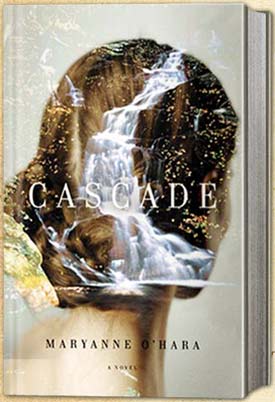 Because of her curation work for archaeology museums, many of her tales feature the study of archaeology although many tend to feature the tedious nature of cleaning artifacts rather than the careful study of a site.
Because of her curation work for archaeology museums, many of her tales feature the study of archaeology although many tend to feature the tedious nature of cleaning artifacts rather than the careful study of a site.
Category: Literary Fiction Reviews
A review of Imaginings: Selected Stories by Dean Warren
 Overall, this collection of short stories is quite imaginative and explores many different scientific areas of interest. The stories play with the effect on humanity. They explore changes to our bodies, minds, civilization, relationships and offer looks at different cultures.
Overall, this collection of short stories is quite imaginative and explores many different scientific areas of interest. The stories play with the effect on humanity. They explore changes to our bodies, minds, civilization, relationships and offer looks at different cultures.
A review of Whitstable by Stephen Volk
.jpg) There’s so much more in this novella, which has the depth and characterization of a novel. As a story it really finishes before the end, but aficionados of Cushing’s films, including Stephen Volk, and I, clearly didn’t want to stop.
There’s so much more in this novella, which has the depth and characterization of a novel. As a story it really finishes before the end, but aficionados of Cushing’s films, including Stephen Volk, and I, clearly didn’t want to stop.
A review of Cascade by Maryanne O’Hara
 Too many novels depict a woman in the arts accepting limited or no success in her field, because she has given herself up to romance, child-rearing or an unproductive bohemian lifestyle. It is refreshing that Dez escapes these fates.
Too many novels depict a woman in the arts accepting limited or no success in her field, because she has given herself up to romance, child-rearing or an unproductive bohemian lifestyle. It is refreshing that Dez escapes these fates.
A review of Swimming to Elba by Silvia Avallone
 Silvia Avallone tells her story from multiple viewpoints, allowing us inside the hearts and minds of all of her main characters, most often Anna. By being non-judgmental and descriptive in presenting her characters, she allows us to share their hopes and feel their pain even while disapproving of their behaviour.
Silvia Avallone tells her story from multiple viewpoints, allowing us inside the hearts and minds of all of her main characters, most often Anna. By being non-judgmental and descriptive in presenting her characters, she allows us to share their hopes and feel their pain even while disapproving of their behaviour.
Fred Watson on Star Craving Mad
The author of Star Craving Mad reads from and talks about his latest book, on the importance of a multi-disciplinary perspective in science, on future areas of interest for astronomy and other scientific areas, the relationship between music and science, Astronomy…
A review of Feydeau, First to Last by Georges Feydeau
 To many, the plays will evoke the world of Fawlty Towers; and it should come as no surprise, therefore, to learn that John Cleese has often expressed his admiration for Feydeau. It is interesting in this regard to look at Les Paves de l’ours from 1896, a play wherein an upper-class bachelor employs a country bumpkin as a man-servant, believing him to be ‘a diamond in the rough’.
To many, the plays will evoke the world of Fawlty Towers; and it should come as no surprise, therefore, to learn that John Cleese has often expressed his admiration for Feydeau. It is interesting in this regard to look at Les Paves de l’ours from 1896, a play wherein an upper-class bachelor employs a country bumpkin as a man-servant, believing him to be ‘a diamond in the rough’.
A review of Peace, Love and Khaki Socks by Kim Lock
 The novel’s strength is the very personal journey the reader takes alongside Amy as she weighs up conventional First World medical procedures with the almost Cavewoman-style natural homebirthing. It is a suspenseful ride with her as she battles conventions, the expectations of others as well as a category three tropical cyclone to boot.
The novel’s strength is the very personal journey the reader takes alongside Amy as she weighs up conventional First World medical procedures with the almost Cavewoman-style natural homebirthing. It is a suspenseful ride with her as she battles conventions, the expectations of others as well as a category three tropical cyclone to boot.
A review of The Book by Jessica Bell
The Book reads very quickly. This is not just because it’s only 154 pages of reasonably spaced text, but also because Bonnie’s voice drives the story along as we try to understand, from her perspective, the multiple relationships that surround her…
Interview with Kent MacCarter & Ali Lemer
The editors of Joyful Strains: Making Australia Home talk about the book, about choosing the essays and working with the 27 authors, about their own migration experiences, about the relationship between writing and migration, and lots more.